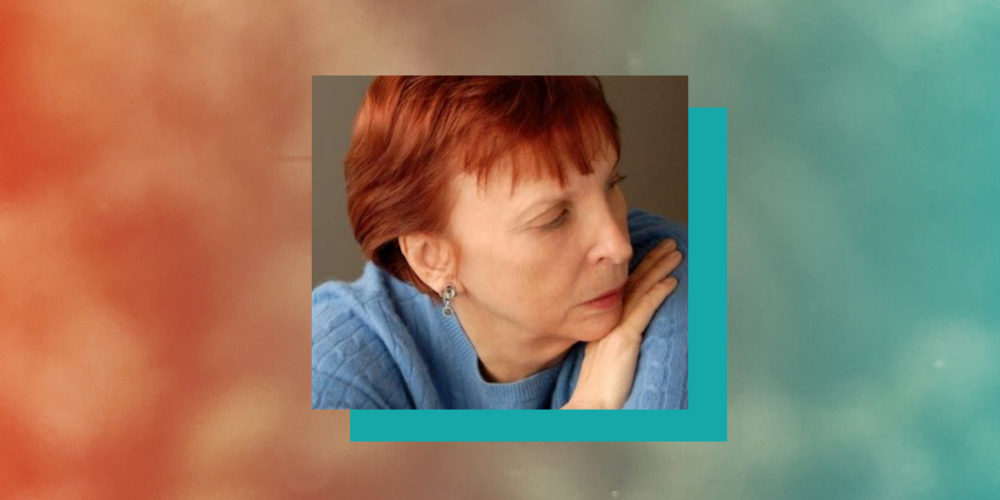Alumni Spotlight: Faye Ellen Silverman '74, '68
The Alumni Spotlight is a place to hear from the School of the Arts alumni community about their journeys as artists and creators.
Faye Ellen Silverman '74, '68, born in New York City, holds a BA from Barnard College (cum laude and honors in music), an AM from Harvard University, and a DMA from Columbia University. About 90 of her compositions are published by Seesaw Music, a division of Subito Music Corp., and recorded on Albany, New World Records, Capstone, Crystal, private label and Finnadar Records. She has received awards from UNESCO, the National League of American Pen Women and ASCAP, and been awarded residencies at the Villa Serbelloni, VCCA, the Macdowell Colony, and Yaddo. Silverman is a Founding Member of Music Under Construction (a composers' collective) and a Founding Board Member of the International Women's Brass Conference.
Was there a specific faculty member or peer who especially inspired you while at the School of the Arts? If so, who and how?
The person who inspired me most while I was at the School of the Arts was Professor Vladimir Ussachevsky. He taught me both electronic music and composition. Electronic music was an important course in terms of my musical development, as it taught me to hear music in a different way. I have always been interested in timbre- important to my work as a composer. But studying electronic music in the days when sound was analog -- when students needed to splice tape by hand -- forced students to listen closely to sounds in order to find precise beginnings and endings., It forced me to imagine what sounds would result when mixed together, as too many mixes degraded the quality of the sound. And who would have guessed that a gong sound without a beginning or an end would be so different? I learned to focus on the inherent properties of the sound.
I also grew as a person through observing Professor Ussachevsky relate to students and colleagues. Although he was a pioneer of electronic music, he never put on airs. He was modest and approachable and kind, and generous with his time. And he taught me diplomacy (although I was a slow learner in this field). I hope that I reflect these traits in my own teaching.
After I finished my doctorate, we began to work together -- giving concerts and exchanging ideas. The association helped him return to writing instrumental music. I introduced him to a few instrumentalists and he also wrote some works for me to perform on the piano. He, in turn, arranged concerts, and helped arrange my first recording and then helped me edit the recorded work. This symbiotic relationship showed me that in a highly competitive world it is possible to be friends with someone in one’s own field and to grow musically (and personally) from the experience.
How did attending the School of the Arts impact your work and career as an artist?
In addition to the benefit of working with Professor Ussachevsky, Professor Chou Wen-chung also impacted my career. Two years ago, his letter of recommendation made it possible for me to go to China with the East-West Center -- an experience that taught me much both about music and about current conditions in another part of the world. And studying and teaching his music has helped me to see how one can combine different cultural materials.
My time in the School of the Arts also led to a few long-lasting friendships with fellow students.
What were the most pressing social/political issues on the minds of the students when you were here?
When I was at the School of the Arts, the Vietnam war was still continuing, and women were fighting for equality (an ongoing battle). Civil rights demonstrations occurred regularly. I felt that I was part of a movement trying to create a better world.
If you could revisit any piece you created during your time at the School of the Arts, which would it be? Why?
Two pieces that I created during these years remain important to me. The first is my dissertation -- a half hour opera on a Jewish short story. It incorporates my Jewish heritage (a story from my childhood and an actual prayer). The opera is about a Rabbi who disguises himself in order to help a poor old woman. His disciples think he must be visiting Heaven (as it is during the High Holy days). The main character discovers that the Rabbi goes “still higher”. The other piece is K. 1971, based on Kafka’s The Trial. It incorporates other texts in several languages since that seemed the best way to enhance the main Kafka text.
